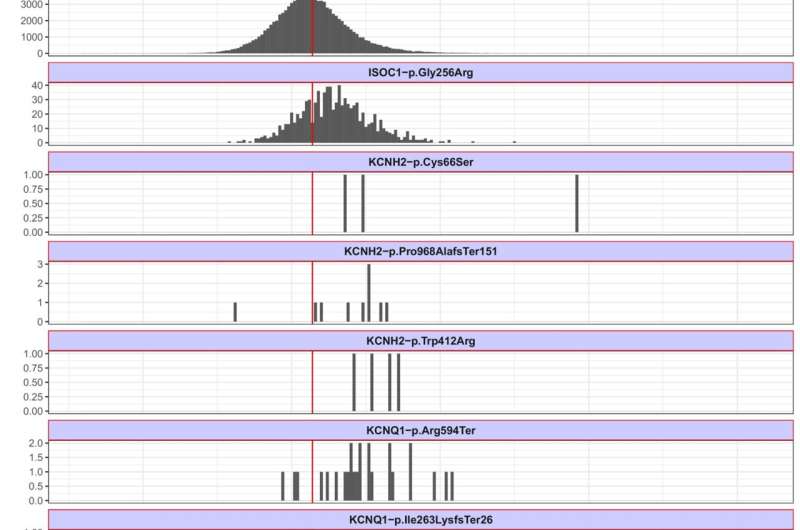This article has been reviewed according to Science X's editorial process and policies. Editors have highlighted the following attributes while ensuring the content's credibility:
fact-checked
peer-reviewed publication
proofread
Improving identification and risk stratification of a heart disorder that can cause sudden cardiac death

Scientists at deCODE genetics, a subsidiary of Amgen, in collaboration with researchers at the National University Hospital of Iceland, have published a study on a cardiac electrical abnormality that can potentially result in sudden cardiac death.
The study, recently published, in the Journal of the American Heart Association, focuses on sequence variants found in the Icelandic population that associate the QT interval on the electrocardiogram. An abnormal QT interval can increase the risk of severe heart rhythm abnormalities and sudden cardiac death.
This study yielded twelve rare variants that associates with the QTc interval, including eight in known long QT syndrome genes. The prevalence of sequence variants associated with QT prolongation was found to be higher than previous estimates based on clinical studies. This study provides new and unique information regarding the genetic epidemiology of QT prolongation, penetrance of sequence variants and their association with serious events.
The relationship between the sequence variants and the risk of serious adverse effects varied significantly. The two most clinically severe sequence variants prolong the QT interval extensively and can increase the risk of sudden cardiac death almost fivefold.
The most common sequence variant, has a small effect on the QT interval and does not appear to increase the risk of sudden cardiac death in the baseline state. However, certain clinical circumstances, such as electrolyte disturbances and when taking medications that have prolongation, of the QT interval as an adverse effect, may render individuals with this variant more susceptible to serious arrhythmias.
The scientists conclude that the extensive knowledge about the genotype/phenotype relationship, as presented in the study, can lead to improved identification and risk stratification for individuals with QT prolonging variants, potentially leading to a more precise clinical approach. This is the goal of precision medicine, a recent discipline, that focuses on a more individualized approach incorporating genetic findings, taking into account variability in lifestyle and environmental factors in addition to utilizing digital health care possibilities.
More information: Gardar Sveinbjornsson et al, Screening for Rare Coding Variants That Associate With the QTc Interval in Iceland, Journal of the American Heart Association (2023). DOI: 10.1161/JAHA.123.029845



















